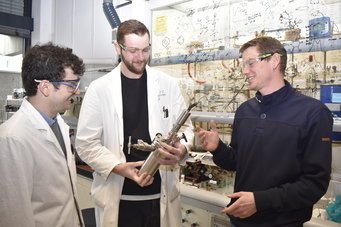Tuesday at the International Congress of Genetics
tuttering gene found.
Fast living killifish reverse muscle wasting
Solving cold cases Early interventions into cerebral palsy
Faster, kinder mitochondrial disease testing
Concerns about gene testing and genomic medicine
- New gene linked to persistent stuttering, thanks to Michael Hildebrand’s team across 18 institutions. Brain imaging shows that people with this defective gene develop anomalies in brain regions critical for speech.
- Early and personalised interventions into cerebral palsy are possible from broad genomic testing, says Clare van Eyk from Robinson Research Institute.
- Killifish suffer from the same diseases of old-aging that we do – cancer, short telomeres, and wasting muscles. Then the muscle wasting slows and may even reverse. Could that happen to people as well? Avnika Ruparelia unravels the mysteries of vertebrate aging at Australia’s only killifish research facility.
- Faster, kinder, less expensive: using genomic sequencing to diagnose mitochondrial disorders has many benefits says MCRI’s John Christodoulou.
- Cold cases: around 70% of patients with suspected genetic disorders don’t get a diagnosis from their genomic testing. Fiona Lynch from MCRI is exploring if reanalysis years later could solve these cold cases.
- 71 per cent of Australians believe that gene testing does not necessarily contribute to effective cancer or disease treatment, according to a survey released by Illumina. At the same time lives are being transformed, for those in the know.
More on all these stories below.
/Public Release.







